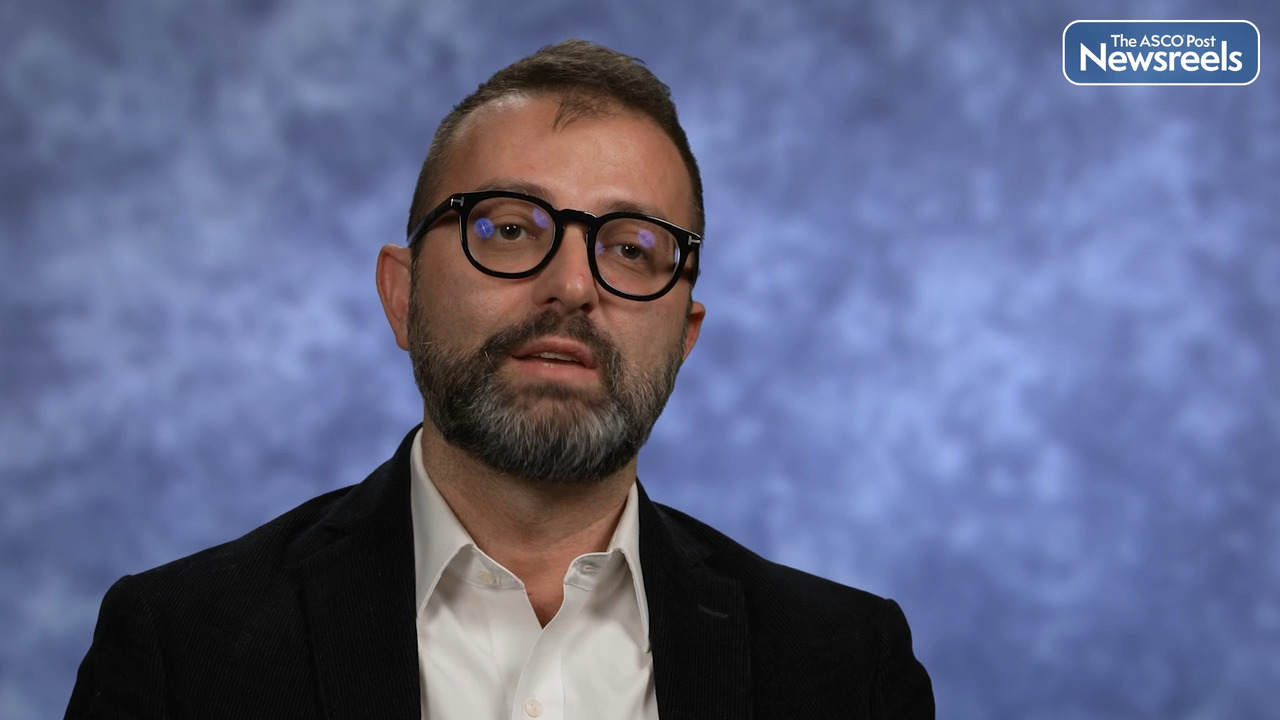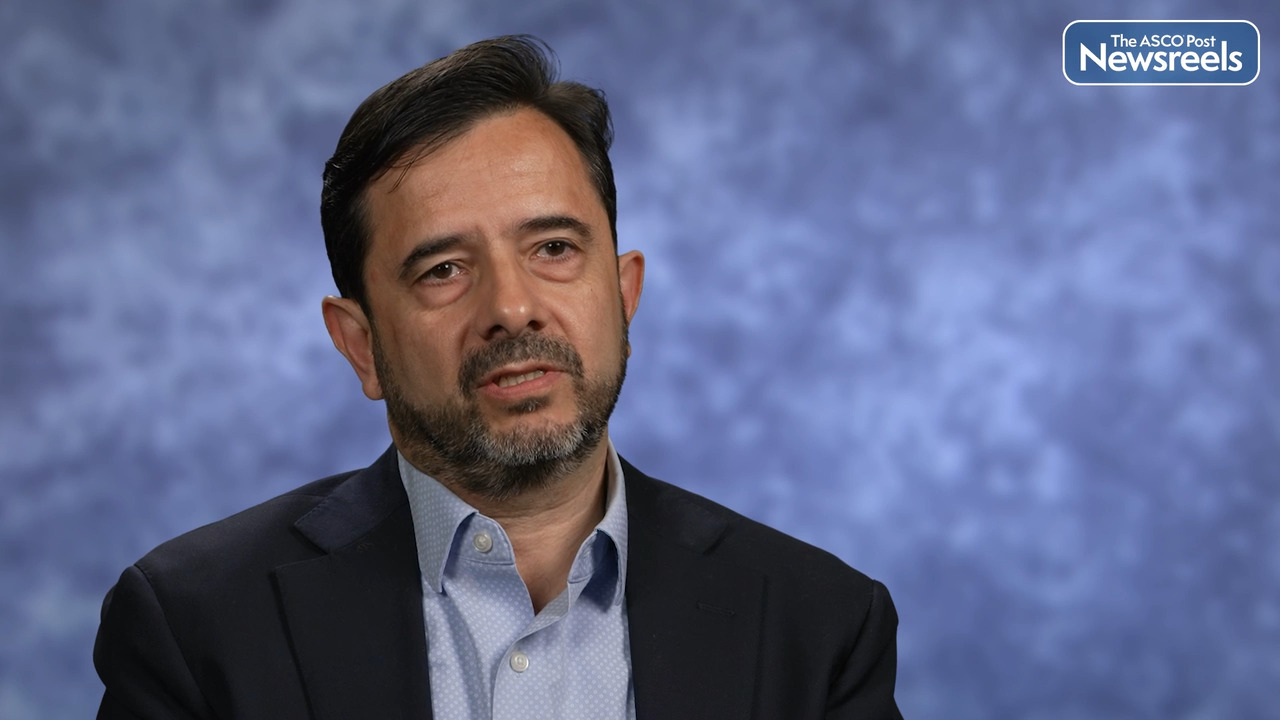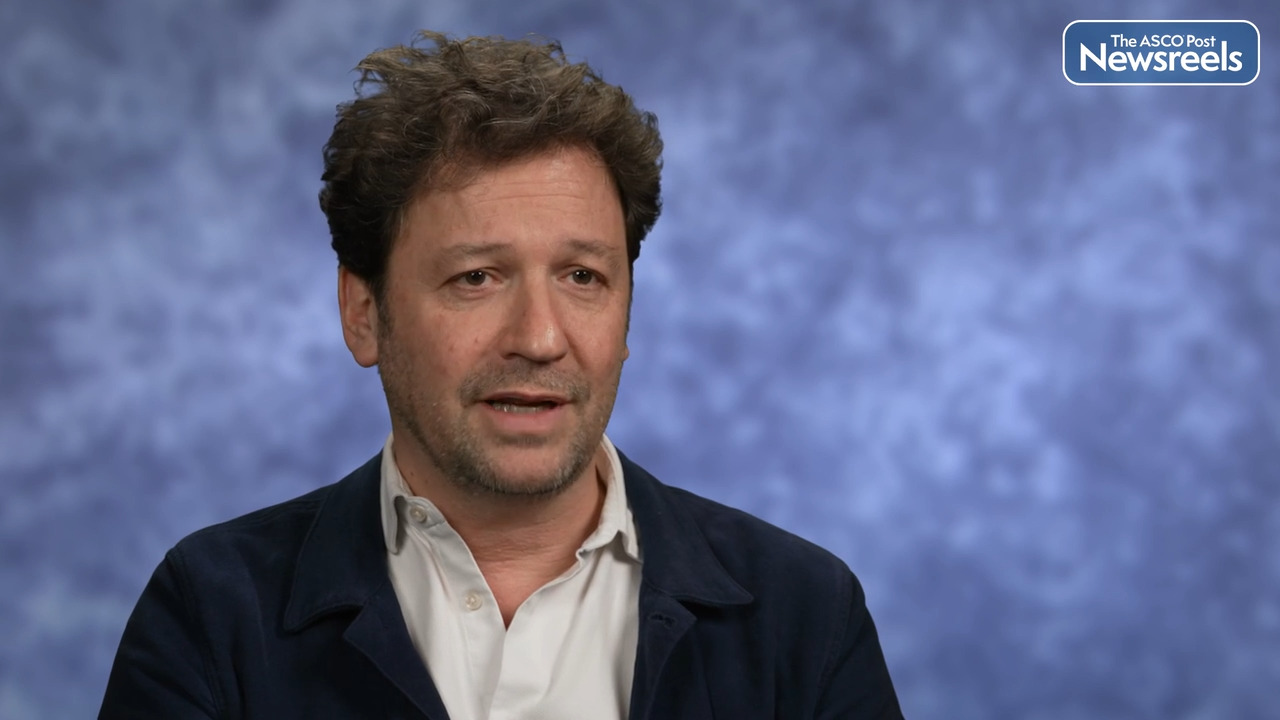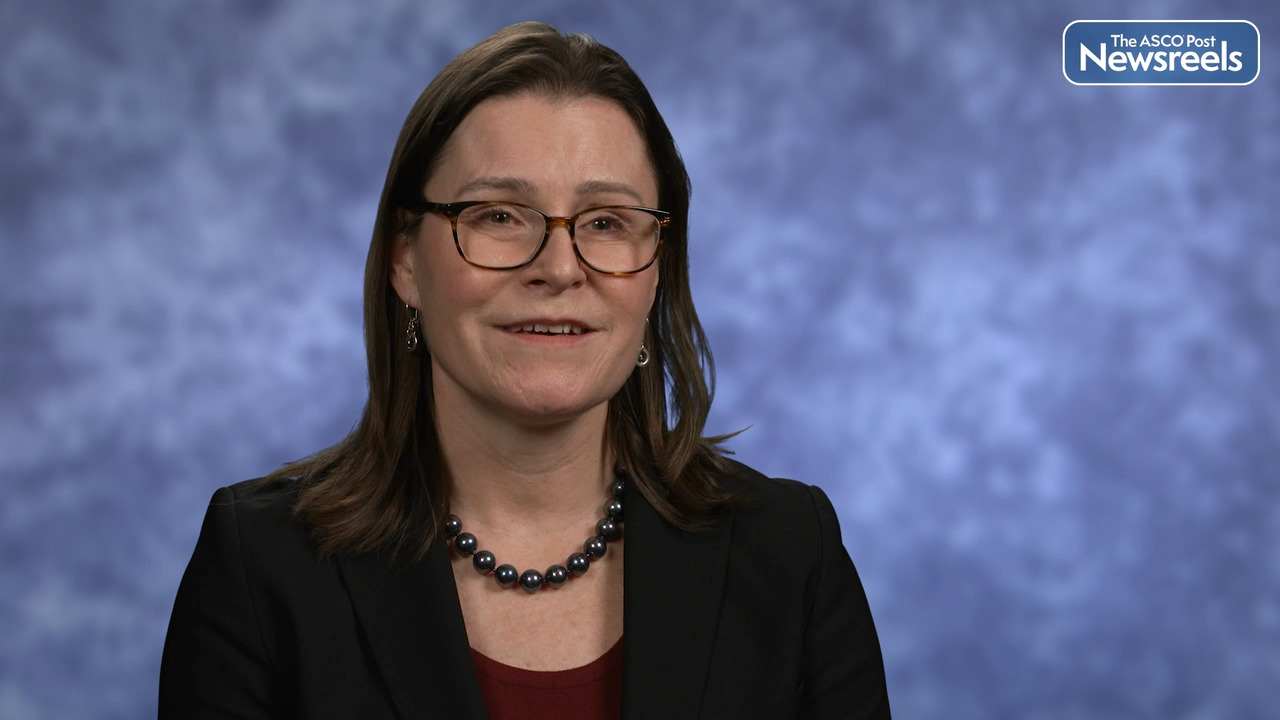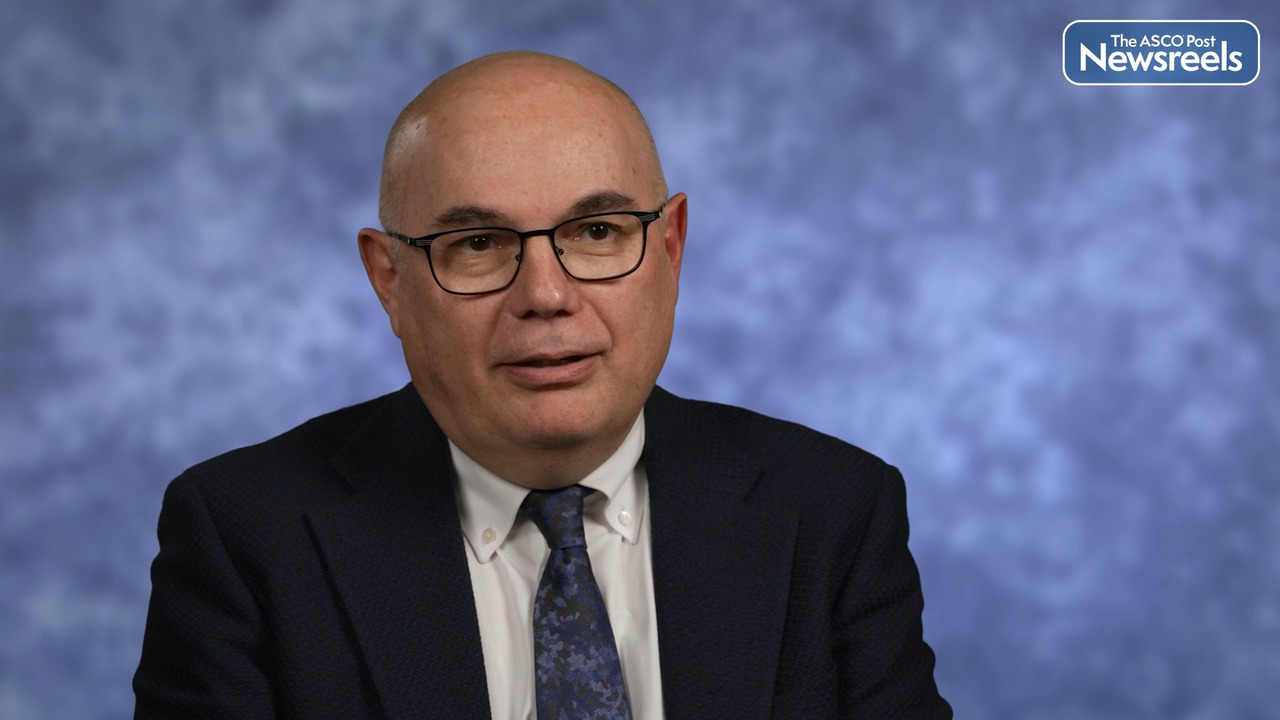Transcript
Disclaimer: This video transcript has not been proofread or edited and may contain errors.
The purpose of the randomized Phase 3 study, NRG/RTOG1112, was to determine the benefits of SBRT in the setting of locally advanced hepatocellular carcinoma. The background is that patients with locally advanced disease, who are unsuitable for standard local or regional therapies, have been treated with systemic therapy. And those who have invasion of their cancer into the large hepatic vessels are particularly challenging to treat.
External beam radiation has been used in single-arm studies and had shown some benefit, but there has not been a Phase 3 study asking the question of whether external beam radiation can improve survival. And so the randomized Phase 3 study, RTOG1112, asked the question, does SBRT improve survival in these patients compared to sorafenib alone? And that was the standard of care systemic therapy at the study inception.
In this study, patients with very advanced cancer were eligible, up to 20 centimeters of tumor in the liver, any degree of vascular invasion. They had to be suitable for sorafenib, and it was a one-to-one randomized study with 193 patients randomized. The study was stopped early due to a change in the systemic standard of care from sorafenib to immunotherapy-based, and thus the power was reduced from 80% to 65% with the lower sample size. Despite the reduced power due to the smaller sample size than anticipated, clinically important and statistically significant improvement in outcomes were seen with the addition of SBRT to sorafenib alone. The median's survival improved from 12,3 months to 15,8 months with the addition of SBRT to sorafenib. And similarly, there is a near doubling of median time to progression and progression-free survival with the addition of SBRT compared to sorafenib alone.And on multi-variable analyses, statistically significant and important improvements in overall survival were seen with the addition of SBRT.
Furthermore, there was a trend to improved quality of life in patients who received SBRT. The FACT-Hep was used. And at six months following treatment, a larger proportion of patients treated with SBRT reported clinically important improvement in quality of life, approximately 35%, versus 10% of patients who received sorafenib alone. There is no concerning increase in adverse events in patients treated with SBRT, and overall, the treatment was well tolerated. Most of the adverse events are likely due to the underlying liver disease that can lead to sequelae and liver failure. 75% of the patients treated on this trial had macrovascular invasion, and most of those patients had invasion of their tumor to the main portal vein, and right or left main portal vein, and are at high risk of having decline in liver function due to their very locally advanced cancer. So effective therapies, such as SBRT that can help control that, can hopefully allow patients to have less adverse events, and then improve quality of life and survival as we saw in this trial.
Next steps would be to consider what the role of SBRT is in the immunotherapy era. So similar randomized studies of atezolizumab and bevacizumab, plus or minus SBRT, are in development, and hopefully will answer that question.
